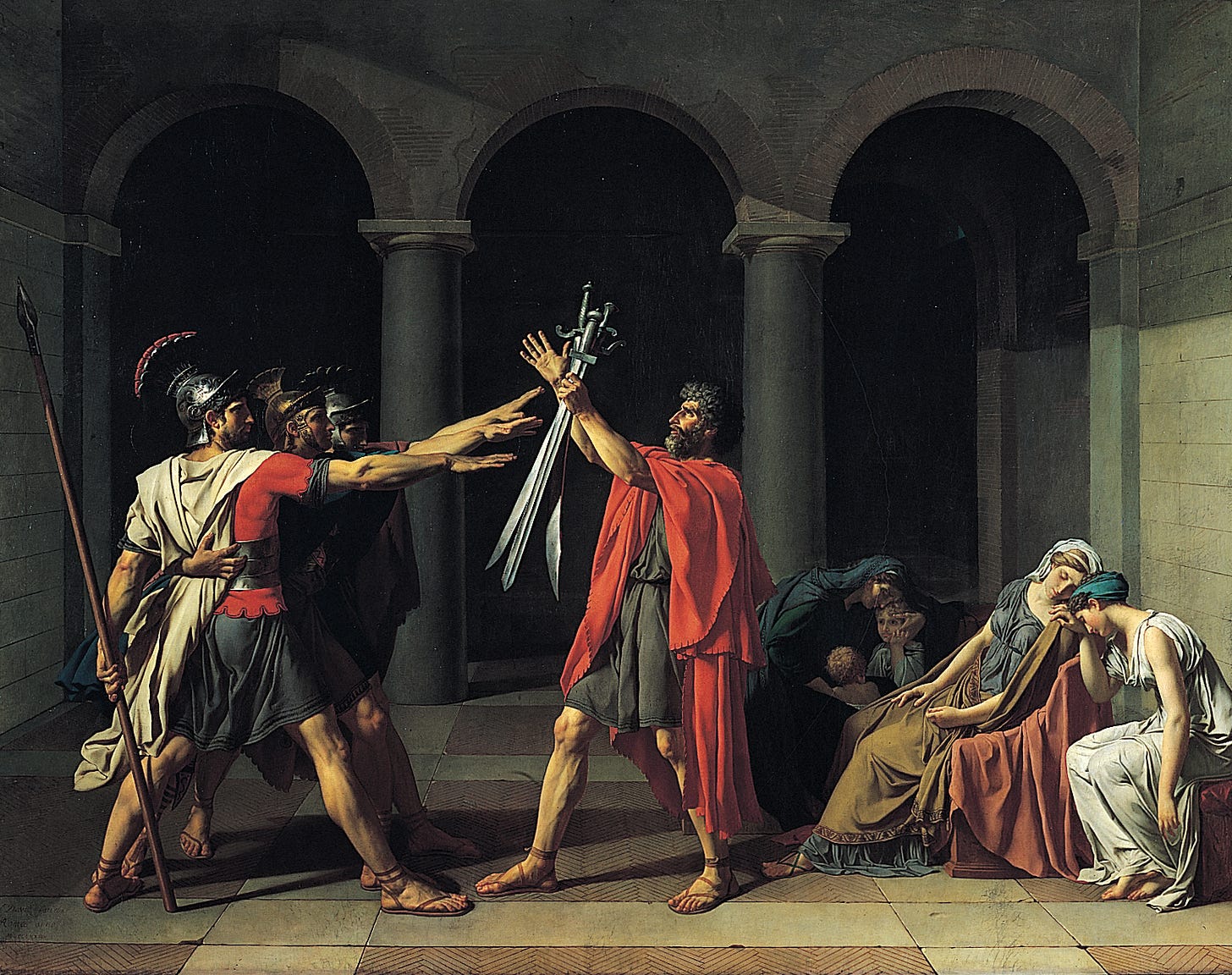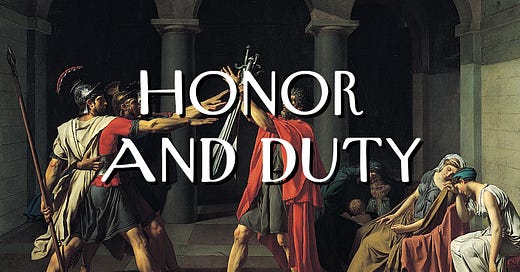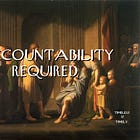
“Waste no more time in arguing what a good man should be. Be one.”
— Marcus Aurelius, 161
Years ago, in one of my first professional jobs, I had a colleague who made an observation that has stayed with me to this day.
I don’t remember the exact situation that brought it about, but he said to me:
“You know what impresses me about you, Monty? I see so many people complaining about things, but you don’t sit around complaining. You take action.”
I’ve considered that remark over the years, and it’s at the core of my sense of integrity: if a person is aware that something wrong and has the power to make a change, I respect them for taking action rather than whining about the situation.
Leaders serve by virtue of the power that they’re given. And, as the phrase goes that can trace its roots to the Bible, with great power comes great responsibility.
“Criticism is necessary and useful; it is often indispensable; but it can never take the place of action, or be even a poor substitute for it.”
— Theodore Roosevelt, 1894
The Duty to Act
That means when a leader is aware of a situation over which he or she has control, they are in a position to do something about it. In fact, they are duty-bound to react.
One reaction is simply to do nothing. Just wait it out, see what the public outcry is, and either take the heat or eventually capitulate with some feeble response.
The alternative is to take action. Given that leaders are aware of their resources, of the impact their decisions make, and of the morale that they inspire by doing the right thing, their actions speak volumes about what they prioritize. They indicate a code of honor.
We don’t hear the words duty and honor being used much anymore, do we? Not outside of the military, anyway. The U.S. Department of Defense has core values that it expects out of its personnel: “duty, integrity, ethics, honor, courage, and loyalty.”
These are values that make up what we recognize as character. We expect our leaders to have character and to act in ways that create trust.
“I am no longer good through deliberate intent, but by long habit have reached a point where I am not only able to do right, but am unable to do anything but what is right.”
— Seneca, 65
Honor. Duty. Trust. These precepts should be lodestars—guiding principles for how we act in our private lives and in our careers. And yet…
The Room Where It Didn’t Happen
Recently we learned that John Bolton’s forthcoming memoir The Room Where It Happened indicates that the former National Security Advisor witnessed multiple instances of misconduct by the president. And yet, given the opportunity to testify during the impeachment hearings, Bolton chose to remain silent.


Facebook has been no stranger to criticism and has continually done things to erode trust rather than to build it. Most recently, Mark Zuckerberg and Priscilla Chan (majority shareholders, with Zuckerberg impervious from discipline or termination) said they were “disgusted by President Trump’s divisive and incendiary rhetoric” during the protests.
And yet Zuckerberg continues to allow him to post divisive and even untrue content on Facebook. If only he was in a position to be able to do something about it. But it seems to be part of the brand at Facebook to simply turn away from unpleasant truths and embrace that which profits the company.
“It little profits that an idle king,
By this still hearth, among these barren crags,
Match’d with an aged wife, I mete and dole
Unequal laws unto a savage race”
— Alfred, Lord Tennyson, 1842
Facebook’s own internal research in 2018 stated “our algorithms exploit the human brain’s attraction to divisiveness. If left unchecked,” Facebook would feed users “more and more divisive content in an effort to gain user attention & increase time on the platform.”
What did Facebook do? It shut down efforts to make the site less divisive.
Honor and duty.
What honor is there at Facebook? What duty do they demonstrate to anyone other than their shareholders?
We have every right to expect accountability from our leaders.
Taking Responsibility = Integrity
President Harry Truman famously had “The buck stops here” displayed on his desk.
Dwight D. Eisenhower, when he was Supreme Allied Commander in Europe, prepared for a possible failure in Operation Overlord at Normandy, penning a note that he hoped he would never have to send: “If any blame or fault attaches to the attempt, it is mine alone.”
Willingness to accept responsibility is the very definition of integrity.
With recent protests over racial inequality, we're finding ourselves at a major inflection point for society, and that includes brands as well.
Earlier this year, Land O’ Lakes dropped their logo that depicted a Native American woman. Now Quaker Oats is eliminating Aunt Jemima, a brand that was established in 1889 featuring a black woman who was originally dressed as a minstrel character.
In the 1970s, the American chain restaurant Sambo’s (which was an amalgamation of the names of its founders, Sam Batttistone and Newell Bohnett) faced backlash, as its name was reminiscent of the very dated book The Story of Little Black Sambo by Helen Bannerman (1899). They reluctantly began to move away from it, but the damage was done and its more than 1,100 locations in 47 states began to close. As of this month, the last remaining restaurant—the original location, now owned by Battistone’s grandson—is changing its name.
Whether it’s renaming a restaurant, rebranding a racially-insensitive product, or removing monuments to Confederate leaders from public spaces, we’re seeing leaders who recognize their responsibility and are taking action that is within their power.
There is a contingent of the population who see this as capitulating to political correctness, “giving in” to the demands of a vocal minority, or erasing history. They fight for the status quo, ignoring the negative impact that these racial stereotyped representations may have on portions of our society. The underlying assumption is that social reform isn’t possible, because human nature is inherently limited.
As much as I like to point out how human nature is constant, there comes a time when we must recognize the need for change.
Nor are we fixed in a certain morality; we’ve seen society update its expectations over the centuries, from the Emancipation Proclamation and the 14th Amendment to the Civil Rights Act, and more.
Each of us has a moral code, and that’s what defines our integrity. But society operates with a sense of group morality, which involves judgment, shame, and exclusion as well as kindness.
We may think we’re limited in our ability to evolve our morality, but the speed at which we're seeing cultural change backed by a desire for ethics and integrity is astonishing.
According to Allen Buchanan, Professor of Philosophy and Professor of Law at Duke University,
“Humans have possessed moral capacities for many millennia, possibly even hundreds of thousands of years, and yet inclusivist morality has emerged only in the most recent eye-blink of human history.”
Honorable Leadership
Which brings us back to leadership.
Those in power—those with the ability to make a change—have a responsibility to take action when they can. To ignore it is to invite scorn and distrust.
To embrace the opportunities and seek a better, brighter option for all stakeholders is what separates the courageous from the cowardly.
Honor and duty. The backbone of character.
The building blocks of leadership.
“Much has been given us, and much will rightfully be expected from us. We have duties to others and duties to ourselves; and we can shirk neither. We have become a great nation, forced by the fact of its greatness into relations with the other nations of the earth, and we must behave as be seen as a people with such responsibilities.”
— Theodore Roosevelt, 1905
Part 2 explores how our own thoughts of honor return to us:
Keep reading with a 7-day free trial
Subscribe to Timeless & Timely to keep reading this post and get 7 days of free access to the full post archives.






